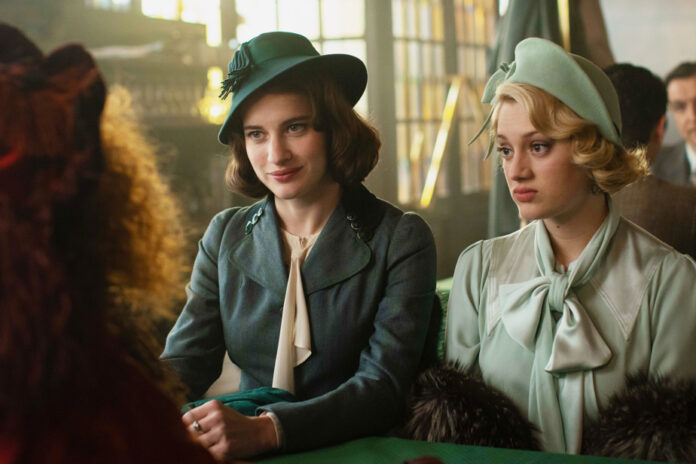During an interview he gave us, François Ozon said he wanted to offer this detective comedy to the spectators as if it were a good glass of champagne, sparkling as one pleases. It’s unclear if the effect is due to the bubbles, but the fact is that My Crime is a delightful film, rooted in a long-gone era – the 1930s – to better echo very contemporary themes, especially the place of women in society.
Inspired very freely by a forgotten play from the French theatrical repertoire, written by Georges Berr and Louis Verneuil (from which the Americans drew True Confession, a feature film that Wesley Ruggles shot in 1937), the director of Peter von Kant ends a sort of trilogy that began 20 years ago with 8 Femmes (the adaptation of a play by Robert Thomas), continued with Potiche (the adaptation of a play by Pierre Barillet and Jean-Pierre Gredy). Like these two films, My Crime indeed puts forward strong female characters, who hold their own despite an unfavorable context and circumstances.
François Ozon sets the mood from the start by launching his credits on a curtain raiser, thus honoring the theatrical origin of his story. An excellent musical score (signed Philippe Rombi), directly inspired by stories of murders and mysteries, leaves no doubt about the dazzling style of a film where everything sparkles, even the poverty in which the two heroines first live.
We will enjoy following the journey of Madeleine (Nadia Tereszkiewicz), this penniless apprentice actress who will become a star after being accused of the murder of a crooked and lewd producer. Following this success, a new culprit declares itself, however, leading the story to false leads as Ozon often likes them. In doing so, Madeleine and Pauline (Rebecca Marder), an equally broke young lawyer who defended her friend in court, unsuspectingly discover a militant streak in forcing patriarchal society to look at itself in the mirror.
Beyond the well-crafted lines and the impeccable artistic direction, Mon crime stands out above all thanks to its performers. Nadia Tereszkiewicz and Rebecca Marder, magnificent, are here surrounded by big names who, visibly, revel in what they have to say and do. Isabelle Huppert pulls out all the stops in an actress character directly inspired by Sarah Bernhardt. His face to face with Fabrice Luchini, priceless in the role of a judge overwhelmed by events, is worthy of an anthology. And then there’s Dany Boon (with the Marseille accent!), André Dussollier, and also several remarkable actors in peripheral characters. Mention to Olivier Broche as the clerk.
So, yes, we can say that champagne is good and sparkling. Health.








